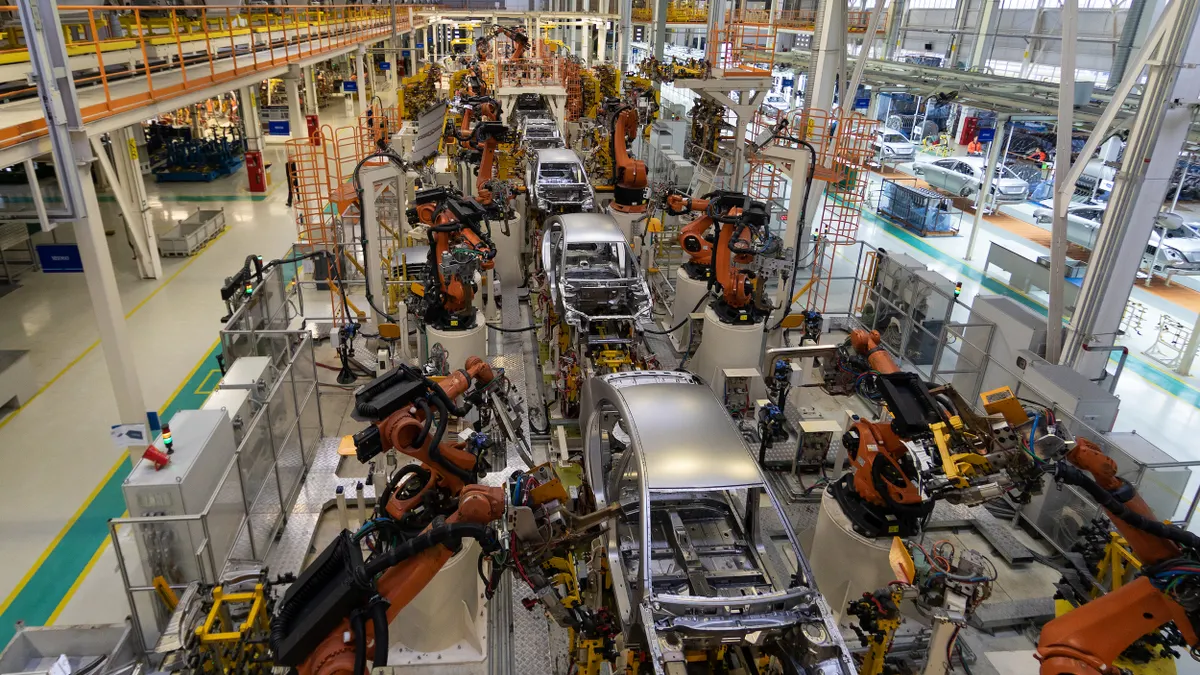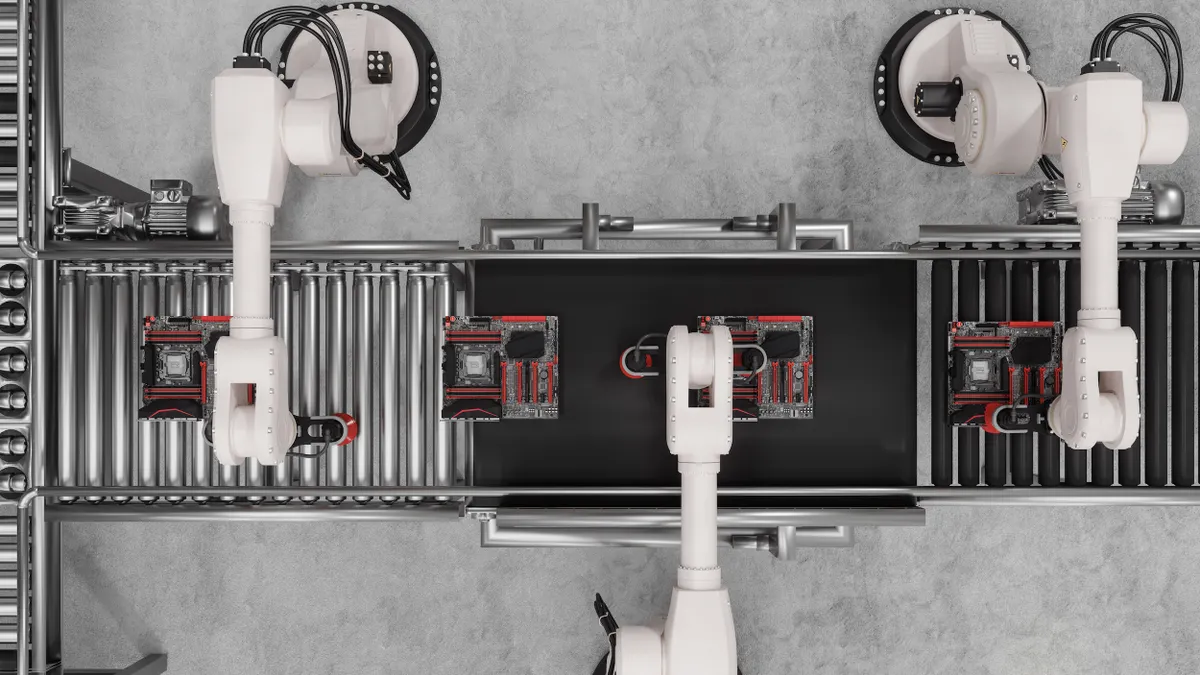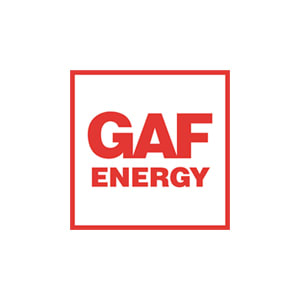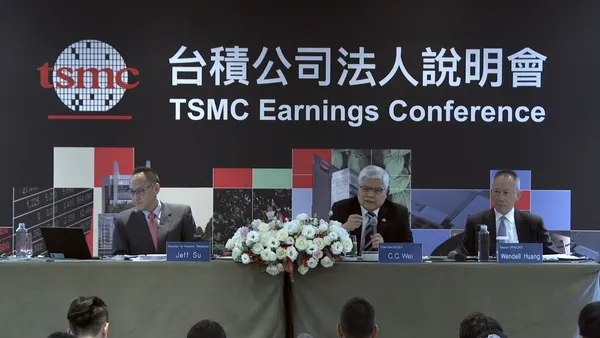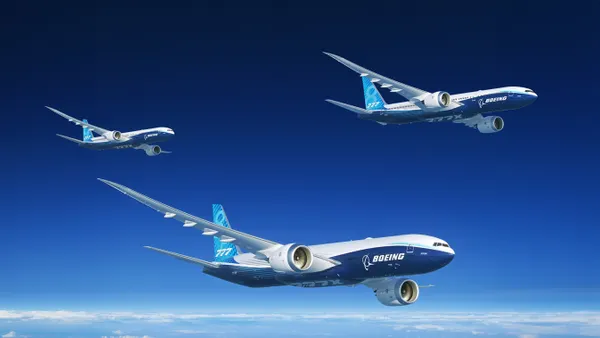Dive Brief:
- Nvidia had another blockbuster quarter, with revenue up 69% year over year to $44.1 billion in Q1 of the company’s 2026 fiscal year.
- The jump was largely fueled by continued data center demand, which spiked 73% YOY to $39.1 billion.
- The company’s success comes despite recent export controls placed on H20 artificial intelligence chips to China, costing it $4.5 billion in Q1 due to excess inventory and purchase obligations. Nvidia was also unable to ship an additional $2.5 billion in H20 revenue last quarter.
Dive Insight:
Nvidia is navigating rapidly changing policies from the Trump administration on multiple fronts.
Last month, the company unveiled plans to invest $500 billion in U.S. manufacturing over the next four years.
“President Trump has outlined a bold vision to reshore advanced manufacturing, create jobs and strengthen national security,” Nvidia President and CEO Jensen Huang said on a Thursday earnings call. “Future plants will be highly computerized in robotics. We share this vision.”
As the company unveiled its massive United States investment, the chipmaker has also been dealing with the fallout of new export controls to China on its H20 chips. Nvidia expects to lose another $8 billion in revenue in Q2 as a result of the policy.
Hensen critiqued the notion that China cannot compete with the U.S. without American chips, saying that "the platform that wins China is positioned to lead globally." China shocked the AI industry earlier this year when the DeepSeek chatbot hit the market at a lower price point and despite U.S. export restrictions.
Nvidia is developing a cheaper, lower-grade Blackwell chipset for the China market that will be released in the coming months, according to a Reuters report.
“The U.S. has based its policy on the assumption that China cannot make AI chips. That assumption was always questionable and now it's clearly wrong. China has enormous manufacturing capability,” the CEO said.
Despite the criticism, Hensen reiterated on the call that the U.S. “will always be Nvidia's largest market and home to the largest installed base of our infrastructure.”
Looking at the future of manufacturing, Hensen said factories will be built upon an AI foundation, the infrastructure for which Nvidia is building out in the U.S. and in U.S.-based clouds. AI will be integral in powering not only a factory, but the products made in it.
“Every factory today that makes things will have an AI factory that sits with it,” the CEO said.




